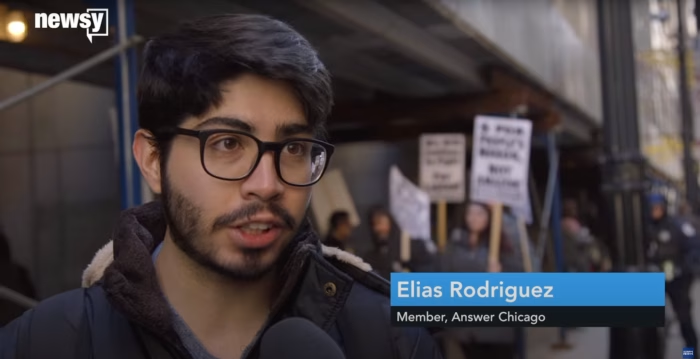A radical anti-Israel group known as Unity of Fields, previously implicated in the controversial takeover of Columbia University’s Butler Library, is facing growing backlash and legal scrutiny after publicly praising the Washington, D.C. shooter Elias Rodriguez, who murdered two Israeli-American staffers outside a Jewish museum.
In a chilling online statement posted just hours after the attack, the group described Rodriguez’s actions as “an act of love, solidarity and resistance”, further inflaming tensions surrounding the intersection of pro-Palestinian activism and domestic radicalization.
The DC Attack: What Happened
On the evening of May 22, 2025, 31-year-old Elias Rodriguez approached a small group of individuals gathered outside the Capital Jewish Museum and opened fire, killing Yaron Lischinsky (28) and Sarah Milgrim (26), both U.S. citizens and cultural affairs staff linked to the Israeli embassy. According to eyewitnesses and initial police reports, Rodriguez shouted “Free Palestine” before being apprehended by D.C. police.
Law enforcement authorities later recovered a multi-page manifesto titled: “ESCALATE FOR GAZA — BRING THE WAR HOME”, which calls for acts of violence on American soil in response to perceived U.S. and Israeli “imperialism.” The document was later shared and celebrated by Unity of Fields, confirming ideological alignment between the shooter and the activist group.
Who Is ‘Unity of Fields’?
Unity of Fields has grown from an underground student collective into what experts are now calling a trans-campus militant protest network, with chapters across several elite institutions including Columbia, NYU, and UC Berkeley.
Originally formed in response to Israel’s 2023–24 military campaign in Gaza, the group gained national notoriety last month after its members helped orchestrate the April 2025 occupation of Columbia’s Butler Library, where protestors barricaded entrances, flew Palestinian flags from the rooftop, and demanded the university sever all ties with Israel and Israeli-linked institutions.
During that takeover:
-
Several Jewish and Israeli students were reportedly harassed.
-
Radical materials, including anarchist instruction manuals and pro-Hamas zines, were distributed inside the occupied library.
-
Columbia University’s administration eventually called in NYPD officers to end the occupation, resulting in over 45 arrests.
Despite the group’s open rejection of violence during official protests, their online rhetoric and internal documents, now obtained by federal investigators, suggest a deeper endorsement of direct action, sabotage, and insurrectionist tactics.
Fallout on Campus and Beyond
The statement praising Elias Rodriguez has intensified calls for:
-
Federal investigation into the group under domestic terrorism statutes.
-
Immediate expulsion of all known Unity of Fields-affiliated students.
-
Increased campus security for Jewish and Israeli-identifying students.
The Anti-Defamation League (ADL) issued a sharp condemnation of Unity of Fields, calling the group’s actions “a vile normalization of political violence and antisemitic hate, masquerading as progressive activism.”
Columbia’s president, Minouche Shafik, has also come under pressure to act decisively. In a recent statement, she said the university is reviewing all student organization charters and disciplinary processes “in light of deeply disturbing external affiliations and recent violent rhetoric.”
Legal Ramifications and Federal Response
Homeland Security sources confirmed to multiple outlets that Unity of Fields is now officially under federal review, with possible connections to “internationally inspired domestic extremism.” A joint task force involving the FBI, DHS, and NYPD’s Counterterrorism Bureau is mapping the group’s online footprint and financial support networks.
It remains unclear whether Elias Rodriguez had any direct contact with Unity of Fields members, though sources say his writings mirror language found in protest materials distributed during the Columbia occupation.
A New Phase of Extremism?
This incident has reignited the national debate over campus radicalization, the blurring of lines between political protest and militant extremism, and the responsibilities of universities to uphold free speech without enabling hate or violence.
Commentators across the political spectrum now warn that the glorification of such violent acts may encourage copycat crimes, especially as tensions rise in the Middle East and within American discourse around identity, race, and foreign policy.
As the investigation into Unity of Fields deepens, institutions of higher learning and policymakers alike are confronted with urgent questions:
-
How do we protect legitimate activism while deterring radicalization?
-
Where is the line between dissent and incitement?
-
And how should free societies respond when ideas once shared in student flyers become manifestos of murder?





Discussion about this post